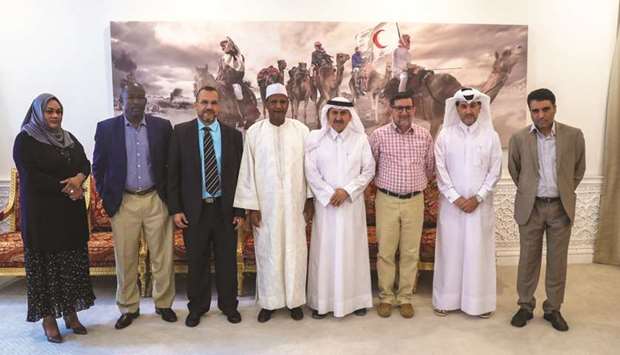Qatar Red Crescent Society (QRCS) recently signed a memorandum of understanding (MoU) to open a regional representation office in Mali, which will undertake its relief and development operations in West and Central Africa.
The MoU was signed by Ali Hassan al-Hammadi, secretary-general of QRCS, and Dr Abdourahmane Cissé, president of Mali Red Cross.
The signing ceremony was also attended by Mamadou Traoré, secretary-general of Mali Red Cross; Rasheed al-Karouti, head of the new representation office; Abdullah M al-Mulla, director of Communication at QRCS; Dr Fawzi Oussedik, head of International Relations; and Najlaa al-Haj and Said Tijani from the QRCS Relief and International Development Division.
Al-Hammadi said he was happy at signing the agreement. “It confirms the bilateral will to work together to meet the needs of the most vulnerable communities in Mali and neighbours,” he commented. “Poverty and domestic conflict have weighed heavily on the humanitarian conditions in those countries. It is our duty at QRCS to build partnerships with the fellow Red Cross societies there, to ensure intensive cooperation and wider outreach.”
Dr Cissé stressed the importance of the agreement as a framework for future co-operation to deal with rising humanitarian challenges. “We need to enhance our operational capacity and support the central headquarters, as well as the domestic branches,” he noted. “This can be possible with such a strong, balanced, flexible, and long-term understanding and co-operation as with QRCS.”
Under the five-year agreement, the two parties will fulfil the needs of vulnerable groups with a view to making a positive impact on their overall living conditions. QRCS commits itself to backing Mali Red Cross, for the latter to be able to respond well to the priorities of intervention in a self-sustaining manner, a press statement notes.
They agreed to co-ordinate with other components of the International Red Cross and Red Crescent Movement on developing an emergency response strategy. The bilateral partnership will translate into humanitarian operations where the geographic features, required activities, and respective strategic approaches are taken into consideration.
The new regional representation office will facilitate communication, follow up with the existing operations, and launch new ones in Mali and other Sub-Saharan countries. Other forms of co-operation include transfer and integration of knowledge, exchange of experience, promotion of the best humanitarian practices, and expanded co-operation on common issues.

Officials from QRCS and Mali Red Cross mark the occasion.
